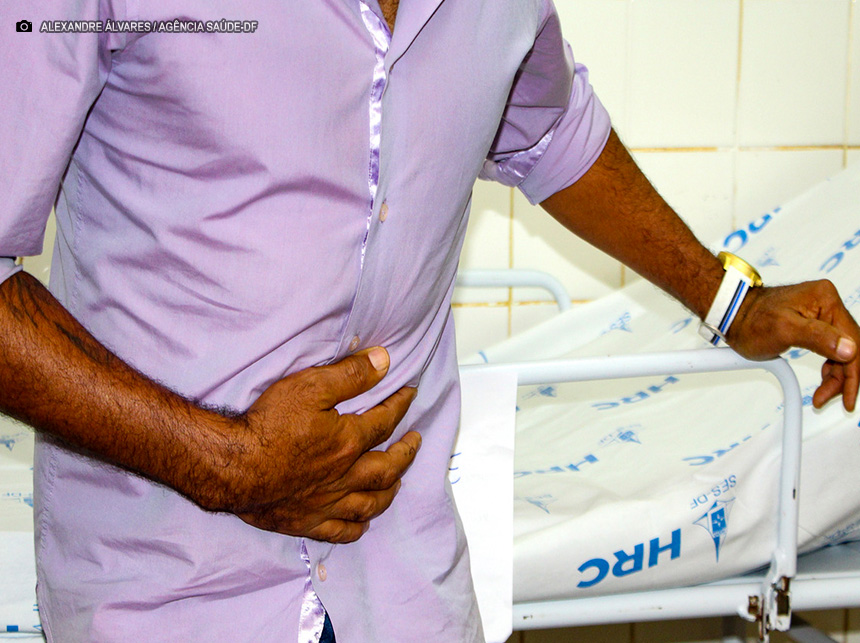By Ingrid Soares and Larissa Lostoza
Purple May is Awareness and Visibility Month for inflammatory bowel diseases (IBDs), such as Crohn’s disease and ulcerative colitis. According to the Brazilian Society of Colorectal Medicine (SBCP)Inflammatory bowel disease (IBD) affects more than five million people worldwide, and in Brazil, there are about 100 diagnoses per 100,000 population.
Crohn’s disease affects the small intestine and colon, from the mouth to the anus. The acute form can deeply affect the tissues of the gastrointestinal tract. Ulcerative colitis is a condition that affects the ends of the large intestine (rectum and colon), causing inflammation in an area that may or may not have ulcers.
The symptoms of both are similar: abdominal pain, weight loss, and more than six weeks of diarrhea and bleeding. Since they are chronic diseases, they are both risk factors for bowel cancer, have no cure and are considered autoimmune diseases.
Although it has no direct cause, the onset of diseases is related to family history, changes in the immune system, changes in intestinal flora, diet and environmental influence.
Inflammatory bowel diseases specialist at the Ministry of Health (SES-DF), Renata Velardi, highlights that there are environmental triggers (smoking, stress), medication use (antibiotics, anti-inflammatories), infections, and Western diet, which can contribute to the beginning. The gastroenterologist also highlights that in recent years there has been an increase in the prevalence and incidence of these diseases in the Brazilian population.
“Mayo Roxo is very important to help raise awareness. Talking about intestinal symptoms is still taboo for many patients. Previously, inflammatory bowel diseases were considered rare diseases. Today, no more. The number of new cases has also risen,” Velardi noted. .
Early diagnosis is essential to avoid complications and the gold standard screening for detection is colonoscopy. The examination not only serves to observe visual changes such as redness and mucosal lesions, but it also helps in obtaining biopsy material.
Adaptation
It was persistent vomiting, weight loss and persistent abdominal pain that prompted Mayara Luiz Nieves, 32, to seek medical help. After a suggestion from an acquaintance, Mayara looked for a gastroenterologist, who recommended joint follow-up with a proctologist. She underwent video colonoscopy and MRI, which confirmed the diagnosis of Crohn’s disease.
For Mayara, accepting the diagnosis was a huge challenge, in addition to having to adapt to a new reality. “It’s a challenge to understand that from the moment of diagnosis, your lifestyle, especially your diet, will change. Because 80% of your recovery will be from your nutrition. You can find an effective medication, but if you don’t change your lifestyle, diet, mental health and physical activity, it won’t help you.” .
Service in the public network
The SES-DF has two reference services in the Federal District for patients with inflammatory disease Base Hospital (HB) and Brasilia University Hospital (HUB) Which has specific outpatient clinics. Integrative health practices (PIS) are also offered by SES-DF, which can help patients and are available to the public in 30 administrative regions and in 87 Basic health units (UBS) Such as meditation and yoga.
Healthy habits such as physical activity and a balanced diet are essential to control crises and should be planned with a specialist. Patients with inflammatory bowel disease (IBD) are at increased risk of nutritional deficiencies and require enhanced nutrition from nutritional supplements, in addition to proper use of prescribed medications.
SUS has medications available High cost pharmacy Both for patients receiving conventional treatment with class tablets – aminosalicylates such as mesalazine and sulfasalazine – and also for more severe patients based on biological immunotherapy, such as infliximab (anti-TNF).
Purple May
Purple May was created as awareness month and the color purple symbolizes struggle and solidarity regarding these health conditions. The goal is to increase discussion about the problem and raise awareness in society about the importance of early diagnosis, as well as correct treatment.

“Writer. Analyst. Avid travel maven. Devoted twitter guru. Unapologetic pop culture expert. General zombie enthusiast.”

